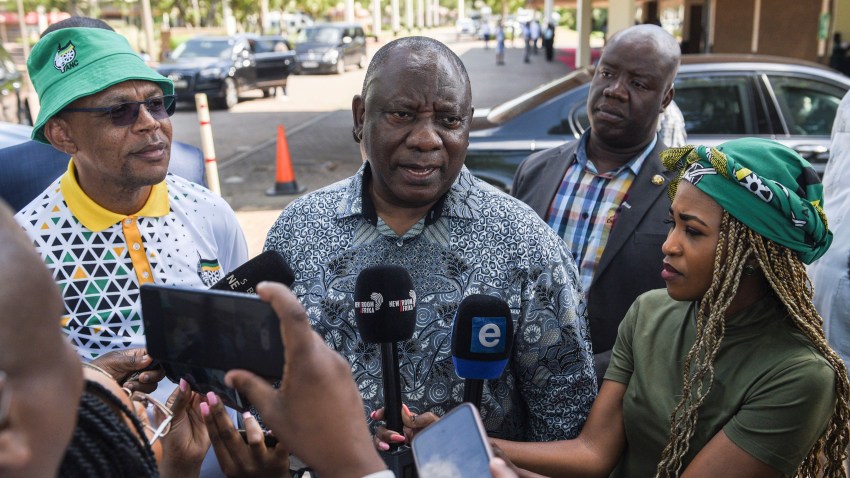South African President Cyril Ramaphosa created confusion about the country’s relationship with the International Criminal Court, or ICC, this week, when he told reporters that his ruling African National Congress “has taken the decision that it is prudent that South Africa should pull out of the ICC.” But within hours, Ramaphosa’s own spokesperson issued a statement clarifying that “South Africa remains a signatory to the Rome Statute and will continue to campaign for equal and consistent application of international law.”
Ramaphosa’s initial remarks also appeared to be at odds with an announcement by South Africa’s parliament in March that it would abandon a years-long process to withdraw from the ICC. Pretoria had notified the United Nations of its intention to withdraw from the Rome Statute—the treaty that established the ICC—in 2016, arguing that membership in the court was incompatible with South Africa’s efforts to broker peace in Africa. The following year, however, a South African court ruled that the government’s decision to withdraw from the ICC without parliamentary approval was unconstitutional. In 2019, a motion was tabled in the legislature to withdraw from the Rome Statute. But the ANC’s leadership decided at last year’s national conference that it was more pragmatic for Pretoria to remain in the ICC and try to reform it from within, thus giving way to the legislature’s pronouncement that it would retract its efforts to leave the court.
For its part, the ANC issued a statement that acknowledged that party leaders had discussed withdrawing from the ICC as a measure of last resort, but also referred to last year’s decision to rescind the earlier effort to pull out of the court. The party’s statement also referred to “options to amend national legislation to domesticate the Rome Statue.”

